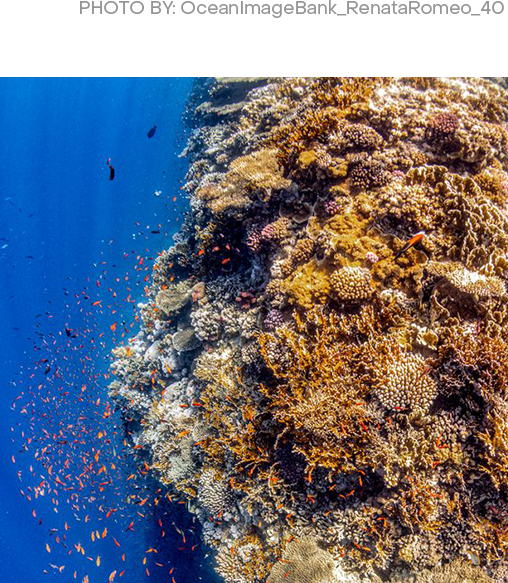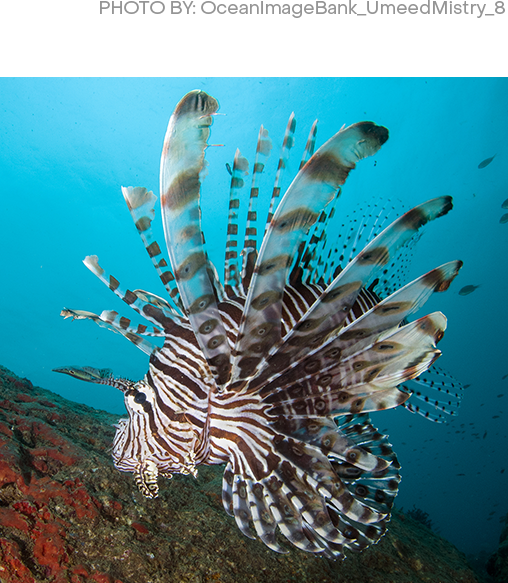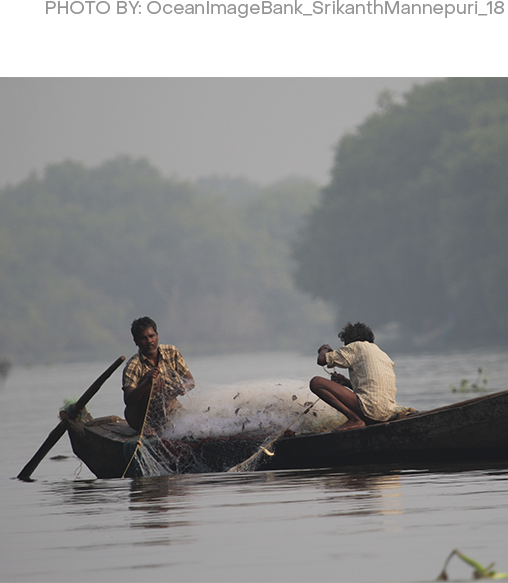Call for abstracts


Submission deadline:
October 25th 2022



Response to applicants:
December 5th 2022

The call for abstracts closed on 25th October 2022.


The environmental crisis and climate change affect all global ecosystems, but marine and coastal systems are particularly vulnerable because of intensive human activities in and around those areas. According to the AR6 IPCC report, the impacts of climate change on ocean and coastal ecosystems and their services threaten the achievement of the UN SDGs by 2030, particularly in the marine environment.
The ocean can contribute substantially to the attainment of mitigation targets, aimed at limiting global warming. But in order to assess this potential, we need to know how marine ecosystems have changed over time, establish the relationships between human activities and impacts, understand past environmental changes in order to predict future outcomes, and assess ocean-atmosphere-land interactions, all supported by adequate technology, data and infrastructure.
This session, thaerefore, welcomes contributions on:
• Environmental changes in key ecosystems and their effects on key marine species.
• Environmental monitoring of ecosystems and exploration of previously inaccessible ecosystems using new technologies.
• Paleoenvironmental reconstructions of key ecosystems, processes governing changes in population and range dynamics of key coastal and marine species, and the resilience of ecosystems and resistance of species to past and current changes.
• Marine and coastal geomorphological processes, biogeochemical cycles and modeling ocean-atmosphere-land interactions.
• Backward modeling to validate models and forward modeling to predict future changes under different global change scenarios.
• Climate change and natural hazard adaptation strategies.
In particular, we encourage interdisciplinary presentations, combining earth and life sciences.


When addressing the rational or fair use of marine resources and sustainability, it is inevitable to recognize the importance of the biological knowledge of diversity and the environment, and the actions that are being taken from science in order to use those resources. For instance, nature-based solutions (NbS), which, when effectively implemented and managed, contribute to the achievement of the SDGs by preserving biodiversity, benefiting most ocean and coastal ecosystem services and increasing marine fisheries and aquaculture sustainability. Additionally, the inclusion of vulnerable and coastal communities in management strategies and spatial management tools, allows the development of new uses for marine resources, including renewable energy development.
This session will cover issues related to:
• Sustainable fisheries and innovative aquaculture production, novel lines of aquaculture focusing on ornamental species, and species of pharmaceutical and biomedical importance.
• Developing and implementing renewable marine energy technologies, environmental impact studies on marine energy technologies, economic assessment of sustainable marine energy production and integrated solutions for sustainable energy, drinking water, and food production on small islands, isolated coastal villages and in vulnerable ecosystems.
• Scientific and economic potential of organisms from unexplored marine ecosystems, novel food and feed products, and ingredients with improved nutritional properties, sustainable biotechnological approaches, and novel compounds for industrial applications (e.g., paints, enzymes, biopolymers, biomaterials, cosmetics and cosmeceuticals).
• Good practice approaches for the management of natural marine resources and the engagement of local communities.
This session, therefore, welcomes contributions on:
• Sustainable fisheries and aquaculture
• Marine Bioprospecting
• Marine energy production
• Circular economy around the oceans
• Blue Carbon


The oceans cover 70% of the planet’s surface, providing food, regulating climate and generating most of the oxygen we breathe. However, increased coastal development and recreational use of beaches impact coastal zones and waters, putting marine life, migratory species and coastal communities at risk.
Around 40% of the world’s population lives within 100 kilometers of the coast and, in general, the world’s coastal population is increasing faster than in other places. At the same time, vulnerable coastal communities worldwide are the most exposed to the effects of climate variability and climate change events.
A deep understanding of the impacts of the interactions between society and the ocean will allow us to develop new venues of prevention and action for the future. In this way, public policies can be proposed, and education generated in the communities, aligned with the SDGs, in order to face the effects of climate change. Raising awareness on the protection of life and coastal ecosystems allows a healthy coexistence between society and the coasts, seas and oceans.
This session, therefore, welcomes contributions on:
• Socioeconomic processes affecting the management of marine resources, impacts on coastal communities brought by regional conflicts and peacebuilding processes, as well as sharing knowledge and intersectoral dialogues related to the use of marine resources.
• Ecosystem services in a regional and territorial context, economic assessment of ecosystem services and ecosystem services-based sustainable management of marine and coastal systems.
• Policies, standards, incentives, and agreements for the sustainable use of marine resources, as well as risk assessment of natural and anthropogenic threats.
• Factors conditioning the food security of marine and coastal communities, ecosystem use and the food sovereignty of marine and coastal communities.
• Preservation of the traditional and cultural practices of local communities regarding food diversity, production and processing, social appropriation of knowledge, dialogues between traditional knowledge and interdisciplinary knowledge.
• Participatory approaches and multi-stakeholder approaches to the management of marine and coastal systems or resources.


